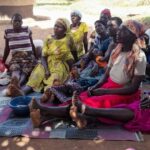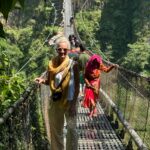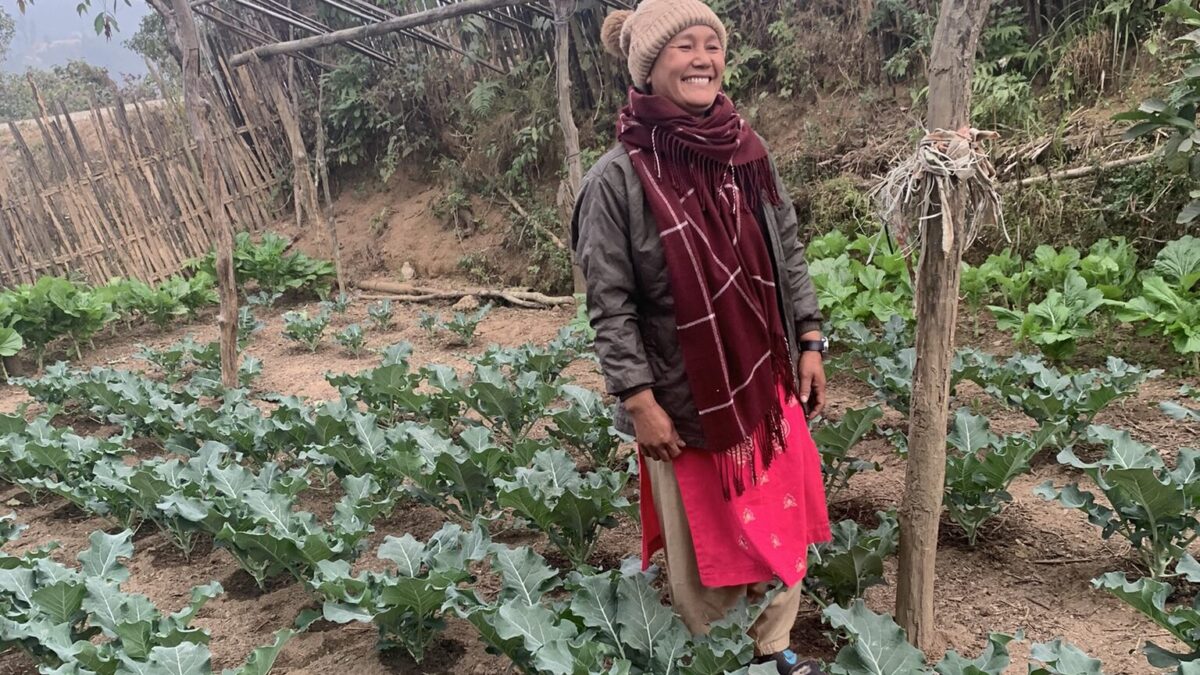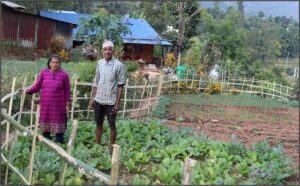
How Community-Based Capital is Transforming Development Across Africa
November 14, 2024
Take a Trip and Gain New Perspectives About the World Around You | Opinion
November 25, 2024Our Kitchens Turned Into Hospitals for Our Health

In the United States the lifestyle medicine specialty has only been active for about two decades. It focuses on personal and community changes in our lifestyles to prevent, manage and reverse chronic diseases. I have been practicing medicine for 40 years and the only formal education in nutrition I received was in the first year of medical school.
In my busy practice, with the pressures of seeing more patients efficiently, it hardly leaves much time to focus on the root causes of many diseases. Although late to the game from a career standpoint, I have recently started the lifestyle medicine program to educate myself, start to make more of a health impact on routine wellness exams and become board certified.
I have concluded that health care in the United States has it backwards.
Lifestyle medicine — with a focus on maintaining good health and preventing illness — should come first. On a recent trip to Nepal, my fourth with Oklahoma City, Oklahoma-based international development organization World Neighbors, I heard the quotation that became this article’s title. It is part of a song one community sang to us to express what they had learned through World Neighbors’ programs.
This line, with its emphasis on something central to our lives and what it means to our health, really struck a chord with me.
The community in which I heard this song is a rural village whose residents are almost entirely lower caste. While Nepal has formally abolished its caste system, these divisions still shape individual and community life, especially in rural areas.
Discrimination and prejudice in the United States have been shown to negatively impact cardiovascular and other health. It is no different in Nepal.
Before World Neighbors began working with this community, people knew little about a balanced diet, including the importance of eating a variety of fruits and vegetables. Basic sanitation and hygiene techniques were also lacking. Many in this tiny village were eager to learn to grow more varied and nutritious produce. World Neighbors and its local partners introduced farmers to new varieties and, with them, organic and sustainable techniques to cultivate them. These techniques protect and enhance the soil, cut input costs and reduce dependence on imported and hazardous chemicals.
Many farmers start with kitchen gardens.
As a result, they and their families consume more varied fruits and vegetables, contributing to good health. Some farmers produce surplus to sell in local markets, increasing their incomes. The profit is often used to purchase “tunnel” plastic greenhouses. This inexpensive innovation enables farmers to grow vegetables year-round, further increasing output, sales and profits. In other villages in which World Neighbors works, farmers have expanded kitchen gardens into significant commercial operations.

World Neighbors’ program members tending to their new kitchen garden
In addition to fruits and vegetables, farmers have learned how to reclaim land for fodder for animals. Prior to the World Neighbors program, farmers would spend three to four hours a day hiking to a jungle to cut down fodder to feed to livestock. Fodder grown on reclaimed village land eliminates the need to venture far from their homes. The regained time can be spent on income-producing activities.
Livestock is now housed in sheds, rather than allowed to roam freely. This reduces the risk of animal waste entering local drinking water and otherwise threatening human health. It also enables farmers to collect livestock waste to be used as organic fertilizer and pesticide. Villagers have learned other basic sanitation techniques, such as washing and drying hands, and using kitchen plates and utensils.
These are simple and inexpensive changes that build on what farmers and their neighbors already do. Though simple, the impact is life changing.
On my recent trip I revisited a community I’d visited a year and a half ago. Farms are flourishing, communicable illness is greatly reduced and residents, including children, are eating varied and nutritious diets of fruits and vegetables, grains, eggs and small quantities of meat. It’s a diet any lifestyle medicine practitioner would recommend.
Farmers are now teaching their diet and the sustainable techniques on which it is based to visiting farmers from other villages — and castes. Being treated with dignity and respect is as important to overall health, both physical and mental, as diet.
We in the United States — especially those of us in health care — could learn a great deal from the transformations taking place in rural Nepal and other countries.
Maintaining good health and preventing chronic diseases is possible. The kitchen, and responsibly producing what we cook, is a good place to start.
Susan Chambers, M.D., is an OB/GYN physician at Lakeside Women’s Hospital in Oklahoma City, Oklahoma. Chambers can be reach by email.
This article originally appeared on The Well News on November 19, 2024.

